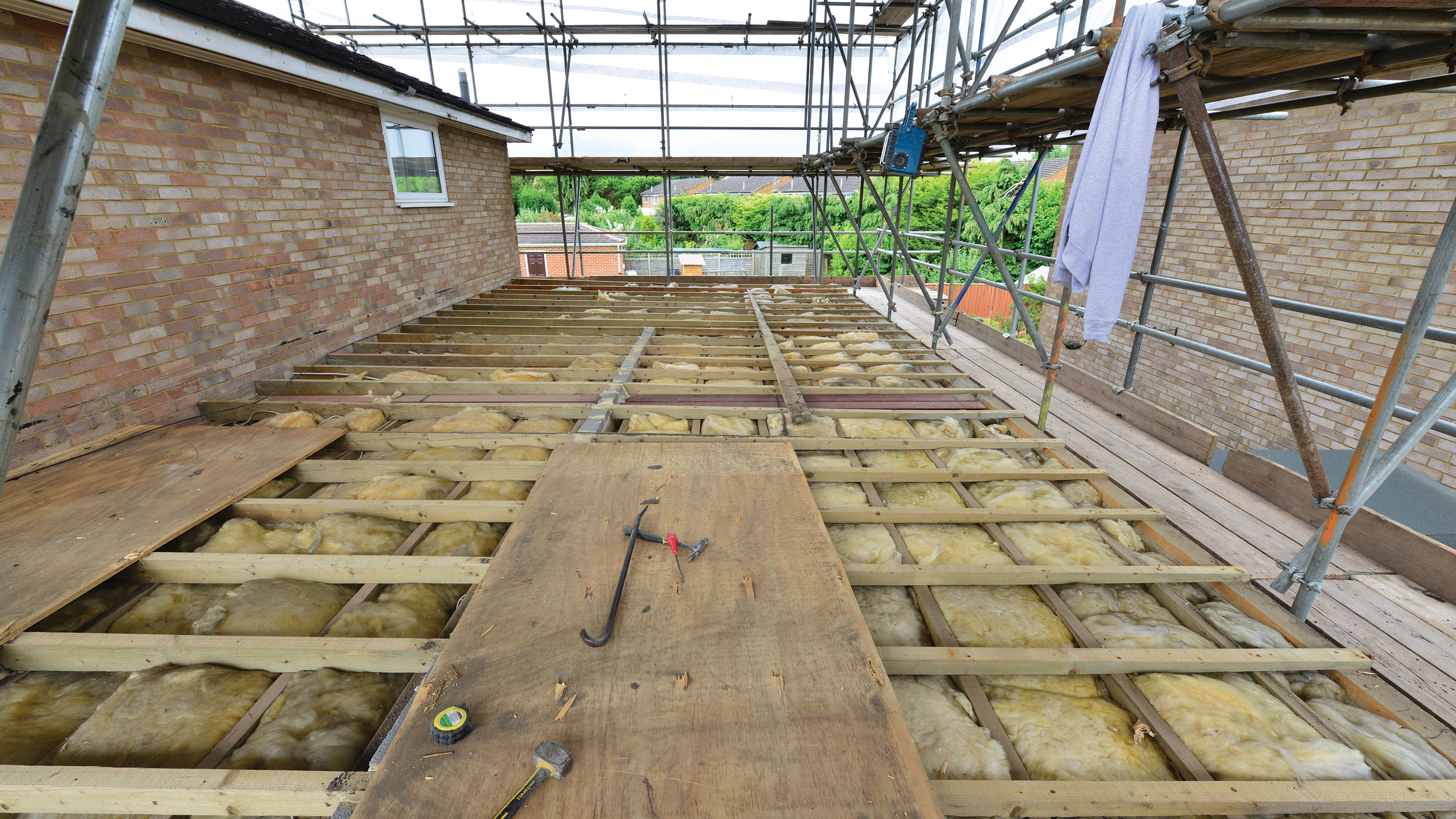The Great British Insulation Scheme – could you be missing out on free insulation?
The Scheme was launched to improve poorly insulated homes but is currently only meeting 2% of its 300,000 homes target. Find out if your home could be eligible and how to apply

Bring your dream home to life with expert advice, how to guides and design inspiration. Sign up for our newsletter and get two free tickets to a Homebuilding & Renovating Show near you.
You are now subscribed
Your newsletter sign-up was successful
The Great British Insulation Scheme, which was launched to help improve the energy efficiency of some of the UK's most poorly insulated homes, is falling short of its targets, according to Government figures.
The Scheme, launched in 2023, was introduced with the aim of insulating 300,000 homes, but has so far only met 2% of this target.
The Scheme, which provides eligible households with free or cheap insulation, with the aim of making their homes more efficient and reduce energy consumption, has had a low uptake.
Measures such as insulating a wall could drastically improve your home's energy efficiency. Here we reveal whether and how you can benefit from the Scheme.
What is the Great British Insulation Scheme?
The Great British Insulation Scheme is a £1 billion means-tested Scheme that makes insulation free or cheaper for households in England, Scotland, and Wales.
Those eligible for support under the Great British Insulation Scheme include households with homes in council tax bands A-D in England, A-E in Scotland and Wales, with an Energy Performance Certificate (EPC) rating of D or below.
The Scheme, which was announced in November 2022, aims to improve the thermal performance of poorly insulated homes. It also aims to support households that have so far been unable to benefit from existing government-funded schemes like the Boiler Upgrade Scheme.
Bring your dream home to life with expert advice, how to guides and design inspiration. Sign up for our newsletter and get two free tickets to a Homebuilding & Renovating Show near you.
The Scheme is delivered through energy suppliers and their installation partners.
When the Scheme opened, the Government aimed for 300,000 homes to be upgraded, on top of the 2.4 million homes that have so far benefited from new energy-efficiency measures under existing support schemes.
Former Minister for Energy Efficiency and Green Finance, Lord Callanan, who introduced the Scheme, said: “Boosting the energy efficiency of homes creates the best long-term protection against fuel poverty for the most vulnerable. That’s why we are helping families with extra support to make their homes warmer, while saving hundreds on energy costs.”
Only 2% of 300,000 target has been met
The Great British Insulation Scheme is reportedly falling short of expectations, with only a small fraction of its intended goals met so far.
Data from the Department for Energy and Net Zero reveals that only 4,648 homes of the targeted goal of insulating 300,000 households by March 2026, have so far been insulated under the Scheme.
Despite the government allocating £1 billion to the Scheme, experts point to a lack of public awareness and misconceptions about the year-round benefits of insulation.
The low uptake may also be linked to limited promotion of the grant, as well as competition from other schemes like ECO4, which offer a wider range of energy-saving options, including heat pumps and solar panels.
Why is an insulation scheme needed in the UK?
UK homes are among the least energy efficient in Europe despite a number of insulation grants being offered.
A 2020 study by thermostat company tado° found that UK homes lose heat up to three times faster than some European countries. The research, which looked at 80,000 homes, showed that after five hours at 20°C inside and 0°C outside, UK homes lost an average of 3°C, while German homes only lost 1°C.
Basic insulation such as insulating a roof is lacking and is much needed to improve the energy efficiency of Britain's housing stock.
What insulation measures could you potentially receive?
The types of insulation you can have installed in your home will depend on what an assessor decides your home needs. The options available include:
- Cavity wall insulation
- Solid wall insulation (internal or external)
- Loft insulation
- Flat or pitched roof insulation
- Underfloor insulation
- Solid floor insulation
- Park home insulation
- Room-in-roof insulation
Am I eligible for the scheme?
Households whose homes fall into lower council tax bands and have poor EPCs can apply for upgrades such as roof, loft or cavity wall insulation through the Great British Insulation Scheme. More specifically:
- Council bands A-D in England, and A-E in Scotland and Wales
- An Energy Performance Certificate (EPC) rating of D or below.
You will also need to be transparent about whether you receive any benefits and what your household income (whether it falls under £31,000), although it is not currently clear what the income limit is.
You don't have to be a homeowner or live in your home either, as tenants and landlords can apply too. That said, tenants are likely to need to ask permission before going ahead with insulating their home under the Scheme.
The Scheme is not currently available for those in Northern Ireland.
How do I apply?
Applications can be made via the government's online checker for the Great British Insulation Scheme.
The tool will ask a series of questions, including what type of walls your home has (solid or cavity), the level of loft insulation, and who your current energy provider is. Applicants can also call 0800 098 7950 for support.
To go ahead with the scheme you will also need to agree to an assessor visiting your home to check what insulation is needed.
It could take several weeks to hear whether your referral has been successful. What's more the viability of the installation of insulation is stated to depend on your home's location, property type and tenure, accessibility, ventilation requirements, and the availability of the installation company.

News Editor Joseph has previously written for Today’s Media and Chambers & Partners, focusing on news for conveyancers and industry professionals. Joseph has just started his own self build project, building his own home on his family’s farm with planning permission for a timber frame, three-bedroom house in a one-acre field. The foundation work has already begun and he hopes to have the home built in the next year. Prior to this he renovated his family's home as well as doing several DIY projects, including installing a shower, building sheds, and livestock fences and shelters for the farm’s animals. Outside of homebuilding, Joseph loves rugby and has written for Rugby World, the world’s largest rugby magazine.
